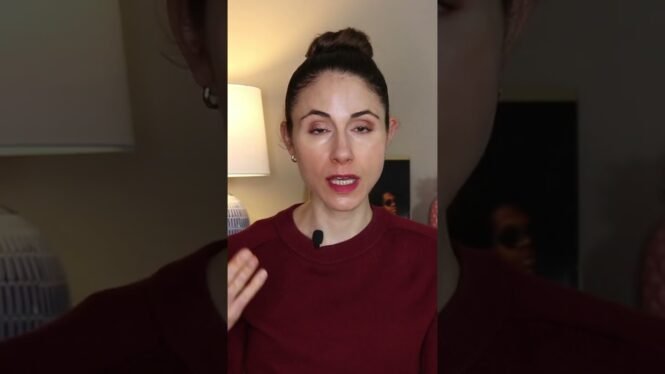Are you experiencing skin problems such as cracks around the corners of your lips or a swollen tongue? Maybe you feel fatigued all the time and have trouble focusing. If so, it’s possible that you’re suffering from a riboflavin deficiency. In this blog post, we will explore the signs associated with a lack of this essential vitamin and what you can do to address it. As a dermatologist, Dr. Drayzday has seen numerous cases of this condition, and she’s here to share her insights with you.
Introduction
Vitamins are essential nutrients that play an important role in maintaining optimal health. However, due to poor diet, lifestyle choices, or certain medical conditions, vitamin deficiencies can occur. One of the essential vitamins that our body needs is riboflavin or vitamin B2. This vitamin is important for various bodily functions, including energy production, normal development and growth, and maintaining healthy skin, hair, and nails.
In this article, we will discuss the signs of riboflavin deficiency and how to prevent it. We’ll also highlight the importance of getting vitamins from whole foods rather than relying on supplements, as well as the importance of moderation in supplement intake.
The Importance of Riboflavin
Riboflavin is important for various bodily functions, including energy production, normal development and growth, and maintaining healthy skin, hair, and nails. It is also involved in the metabolism of carbohydrates, proteins, and fats.
Riboflavin can be found in many whole foods, including milk, cheese, eggs, leafy vegetables, whole grains, and mushrooms. Certain food sources, such as liver, kidneys, and heart, are particularly high in riboflavin.
Signs of Riboflavin Deficiency
Below are the common signs of riboflavin deficiency:
1. Skin Issues
Riboflavin plays an important role in maintaining healthy skin. Therefore, a deficiency in riboflavin can lead to skin issues such as rashes, dryness, and cracking at the corners of the mouth, also known as cheilosis.
2. Eye Issues
Riboflavin is also important for maintaining good vision health. A deficiency in this vitamin can lead to itchy, watery, and bloodshot eyes.
3. Mouth and Throat Issues
Riboflavin deficiency can also lead to mouth and throat issues such as sore throat, swollen tongue, and mouth ulcers.
4. Cognitive Issues
Riboflavin is essential for healthy brain function. A deficiency in this vitamin can lead to cognitive impairment and memory loss.
5. Fatigue and Weakness
Since riboflavin plays an important role in energy production, a deficiency in this vitamin can lead to fatigue and weakness.
Preventing Riboflavin Deficiency
To prevent riboflavin deficiency, it is important to consume a balanced and varied diet. Some of the good sources of riboflavin include milk, cheese, eggs, leafy vegetables, whole grains, mushrooms, liver, kidneys, and heart.
Consult with a healthcare professional to determine if you need to take a riboflavin supplement. However, remember that it is important to take supplements in moderation, as excessive amounts of certain vitamins can be harmful to health.
FAQs
1. Can I rely on supplements to prevent riboflavin deficiency?
While supplements can provide an additional source of vitamins, it is best to get them from whole foods. A balanced and varied diet is crucial for meeting your vitamin needs.
2. What are the long-term effects of riboflavin deficiency?
If left untreated, riboflavin deficiency can lead to long-term health issues such as anemia, cataracts, and neurological problems.
3. Can riboflavin supplements cause harm?
Yes, excessive amounts of certain vitamins can be harmful to health. Consult with a healthcare professional to determine the right dosage for you.
4. How often should I get my vitamin levels checked?
Regular check-ups with a healthcare professional can help detect and prevent vitamin deficiencies. Discuss with your healthcare professional how often you should get your vitamin levels checked.
5. Can a riboflavin deficiency be self-diagnosed?
No. The symptoms of riboflavin deficiency are not specific to this condition and can be caused by other health issues. Consult with a healthcare professional for any medical or health-related diagnosis or treatment options.

